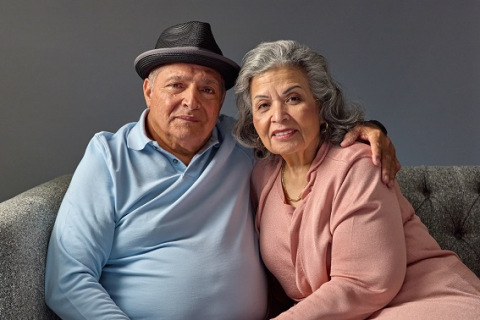Mesothelioma Survivor Shares Diagnosis and Treatment Journey
Fact Checked | Written by: Travis Rodgers | Last Update: 10/30/2024 | 4 Min Read

Fact Checked | Written by: Travis Rodgers | Last Update: 10/30/2024 | 4 Min Read
Written by: Travis Rodgers | Edited By Walter Pacheco | Last Update: October 30, 2024
Fact Checked | Written by: Travis Rodgers | Last Update: 10/30/2024 | 4 Min Read
Six years after his pleural mesothelioma diagnosis, 61-year-old Joey Barna of Massachusetts tells The Mesothelioma Center at Asbestos.com that he feels great. But Joey didn’t always feel so good, especially after his first symptoms started.
“I woke up one morning and thought I was having a heart attack because my left arm hurt. So I went to the hospital, and they thought I had pneumonia because they saw fluid on my lung,” Joey recalled. “They treated me for that. Then a week later, I had a follow up X-ray, and they saw that the fluid was still there. My primary doctor sent me for a CT scan. Fluid had built up and was pressing against my lung, which was preventing me from breathing properly.”
In 2018, Joey underwent a pleurectomy and decortication surgery at Brigham and Women’s Hospital in Boston. Renowned thoracic surgeon and mesothelioma specialist Dr. Marcelo DaSilva performed the surgery. Thankfully, doctors told Joey they caught it early.
“They took a good section of my lung, so there’s a new normal in my breathing department,” Joey explained.
Six years after his mesothelioma surgery, Joey says he still experiences chronic pain. He has a burning feeling on his right side that he describes as inflammation.
Recovery from Mesothelioma Surgery
Joey says he quickly bounced back from the surgery. He was told he’d be in the hospital for about five days but went home after only three days.
“I always give God the accolades because anything can go wrong. Complications can happen with anything, not only with the procedure but also postsurgery,” Joey said.
He says the two most important things in his life, his wife and his faith, helped him recover from the intense procedure.
“My faith and my wife helped me the most during my recovery,” Joey said. “Our faith pretty much helps us through everything. Holding onto my faith helped me move through everything further and quicker.”
Joey Has Severe Side Effects from Treatment
After his surgery, Joey underwent chemotherapy and immunotherapy treatments. He says both treatments resulted in severe side effects.
“I would rather have surgery any day than chemotherapy. It destroyed my whole immune system and GI tract. My stomach was in knots. It just turned my whole body inside out,” Joey remembers. “I wasn’t hungry. I was laid up in bed for a long time with fatigue. I lost precious time where I could have been having fun and being productive. I couldn’t play guitar at church or be involved in a lot of things during the treatments.”
Joey also decided to take an experimental chemotherapy drug in a clinical trial because he thought he may regret it if he didn’t at least try it in case it worked. Clinical trials for mesothelioma patients test the safety and effectiveness of new therapies.
“The drug only works on certain people. Luckily, the experimental drug didn’t do any damage to me, so nothing was lost,” Joey explained.
Unlike the chemo drug, Joey says his immunotherapy treatment took a toll on his thyroid. He says the treatment damaged his adrenal glands. He was taking the immunotherapy drug Opdivo, which the U.S. Food and Drug Administration approved a decade ago.
He said the drug caused his thyroid to stop producing cortisol. Lower thyroid hormone levels are among the common side effects of Opdivo, according to the drugmaker Bristol-Myers Squibb. Joey now takes a daily dose of hydrocortisone as a hormone replacement.
“For what I’ve gone through and all of the ups and downs and surgeries and the chemotherapy and immunotherapy, I’m in pretty good shape now. I just had radiation for the first time recently because they found cancer on my liver that they couldn’t extract surgically,” he said. “I compare it to whack-a-mole, the game at the carnival where you hit one of the moles, and it pops up out of another hole. It seems to be unpredictable where it will pop up anywhere else that it wants to.”
Despite having a rough time with his treatments after surgery, Joey continues having a positive outlook on life and isn’t going to let his mesothelioma diagnosis prevent him from living life to the fullest.
“I never wanted to lump myself in with the statistics or percentages or this or that,” he said. “I am my own person. I may have been given this diagnosis but I never lumped myself in with what normally happens.”





